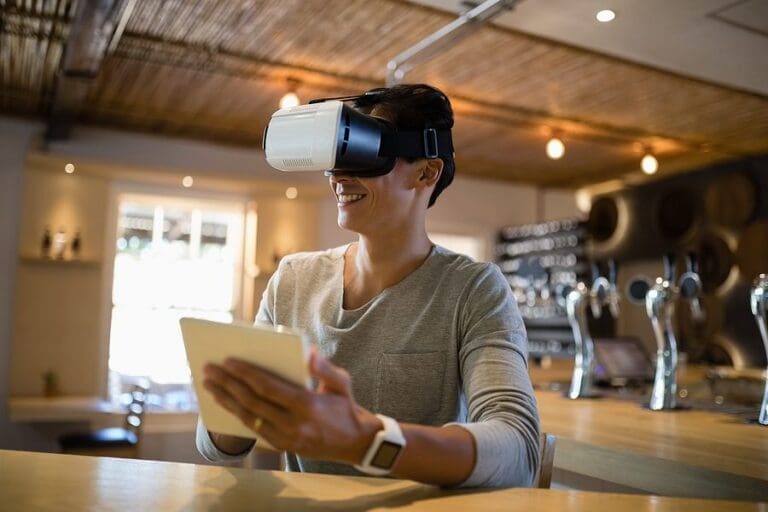The popularity of virtual reality content is on the rise, and it’s offering hotels a powerful tool to get their brand in front of current and potential guests. This technology is also moving at lighting speed, leaving many people with questions about its benefits and the technology itself, especially the numerous VR headsets that have been or will be released.
Below are several of the most significant VR headsets on the market, as well as how hotels of all sizes are using this new technology.
Oculus Rift
Perhaps the most-talked about virtual reality headset is the Oculus Rift, which is being developed by Oculus VR, a Facebook-backed company.
Developer kits for the Rift have been available for several years, but the consumer version will be released during the first quarter of 2016. The Rift is a lightweight headset that tracks the wearer’s head movements, works natively with Windows 10, and comes with an Xbox One controller (or motion-tracking hand bands) to interact with the virtual environment.
Numerous video games are in development for the Rift, but Facebook has confirmed they’re developing an immersive version of their social network for the platform. Considering Facebook’s rollout of 360-degree video in September, the social network could be seeing some major changes.
The Rift is a powerful machine that offers high-quality VR experiences. Because of this, it’s one of the major devices brands have turned to for VR campaigns. In 2013, Marriott utilized the Rift for its Travel Brilliantly campaign, in which the company built phone-booth like “transporters” that allowed guests to virtually visit Hawaii and London.
Nonetheless, there is some downside to the device. It’s $599 price tag is one, as is the need to own a high-powered PC to run the machine. Still, the Rift offers such a high level of immersion, brands have overlooked these facts.
- Release: March 28, 2016
- Cost: USD$599
- Company: Oculus VR (owned by Facebook)
Samsung Gear VR
Less a headset than a head-mounted smartphone holder, the Gear VR comes with a much smaller price tag. The headset works in conjunction with various Samsung smartphones and allows users to easily view VR experiences.
This Gear VR is among the first attempts to crack the mobile market and build adoption of the new tech. To this end, the Gear VR appears to be successful. The headset sold out on Amazon and BestBuy just days after its release.
While the device is less expensive than the Oculus Rift, it is still a robust platform; in fact, it’s powered by Oculus technology. Brands have turned to the Samsung Gear VR because of its portability and affordability Marriott was, once again, among the early adopters of the headset.
In September, Marriott rolled out “VRoom Service,” a program in which guests at the New York Marriott Marquis and London Marriott Park Lane can order a VR headset via room service. Each headset is loaded with three 360-degree videos that follow travelers in Chile, Rwanda, and Beijing.
- Release: November 2015
- Cost: $99
- Company: Samsung
Google Cardboard
If the Samsung Gear VR is a simpler version of the Rift, Google Cardboard is an even more pared down headset. The headset is extremely lightweight and works in conjunction with most smartphones. Smartphone users can download an independent VR app and then use the viewer to experience the content.
Because of its modest cost and portability, a number of prominent companies have created branded Cardboards to give to consumers. Some of the recent brands to do so have been the New York Times and The Patriots, which gave away 1.2 million and 10,000 Cardboards, respectively.
- Release: June 2014
- Cost: $2-$25
- Company: Google
These are just a few of the major virtual reality products that have, or will, hit the mainstream market. As interest in virtual reality content grows, others will undoubtedly dream up new and more innovative products to immerse viewers in their virtual worlds. Knowing what those products are, and how they can be best used to market your location, could be the key to reaching new travelers in years to come.
About the author
Abi Mandelbaum is co-founder and CEO of YouVisit, the only fully integrated platform for creating, distributing, and monetizing virtual reality and other immersive experiences across all devices, including headsets, mobile, and desktop. YouVisit has worked with thousands of businesses and institutions such as Hewlett Packard, Microsoft, Carnival, Yale, Zumba, and New York’s Central Park.































